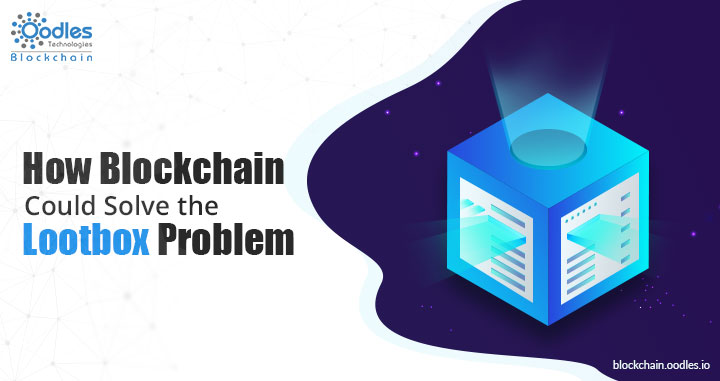-
FoFoLootboxes play an important role in the business realm of game developers and publishers. Lootboxes refer to redeemable virtual items or rewards, which involve accessing maps, weapons, and a whole range of upgrades to an in-game functionality.
Loot boxes have become so substantial for game developers that some of them have entirely shifted their monetization model away from paid games to free games because of their potential to generate revenue.
However, this approach of the game developers has failed to go unnoticed by regulators concerned to classify and regulate such systems. In particular, the situations where loot boxes offering random awards, which can be purchased by paying cash, have come under regulators' scrutiny due to their classification as means of gambling.
In fact, many regulators have already taken stringent actions to restrict these type of mechanisms for the same reason. Belgium Gaming Commission followed its Dutch counterpart and banned loot boxes for 'violating gambling regulations."
For the gaming arena, which has established the profits of this monetization model, such legislation can affect adversely, especially when other regulatory bodies follow suit.
To counter this, it might be possible that developers will start resorting to an advertising business model or selling games rather than offering them for free to everyone.
However, rather than making drastic decisions, they may find peace in the shape of Blockchain Technology. By integrating a new tokenized model that blockchain provides, game developers could not only earn money without resorting to an advertising model but also employ a reward system that would enable gamers to earn rewards for the time they'll spend playing games.
The Loot Box Problem
First emerging in Asia, Loot boxes have become a more well-known term after giant social media game developers like Zynga successfully utilized them.
Since then, they have gradually embedded themselves into the fabric of almost every game. They are available even where their incorporation is unnecessary.
When an entry cost or fee is present to play the game or to enable its features, along with some luck or chance, and if there is potential for some monetary gain, the scheme is probably considered gambling due to these three points. And because loot boxes contain both a cost and a "random rewarding element," they have landed game developers under the scrutiny of regulators.
To pay cash to purchase loot boxes, for regulators in Belgium and the Netherlands, is an act of gambling - and is, therefore, considered as an illegal offering.
While leading game development company EA Games says that it will continue with loot box approach. The company is confident that other regulating authorities don't see it as an act of gambling as the Belgian or the Dutch regulators see it.
However, there is no assurance that other regulators won't act to quash them.
Blockchain as a Solution to the Loot Box Problem
Rather than halting these key revenue factors, publishers could leverage a new method of blockchain monetization.
Every blockchain network will have some type of incentive mechanism built into it. It helps the network to function smoothly. In the case of Bitcoin, the incentive mechanism is the PoW (proof-of-work) algorithm that helps keep the network secure and trustworthy by making it almost impossible to add new transaction detail to the blockchain. Using blockchain, game developers could use an algorithm that's not based on the computational power, but on the gameplay and the "time" spent by a player, or "work" done by a player.
Significantly, this could eliminate the need to submit an initial, entry fee, preventing regulators from labeling it gambling.
Although we can still earn virtual coins within games, awarding cryptocurrency as a result of gameplay is a great solution because existing virtual currencies in games have no real-world value, while cryptocurrency has value at a global scale. This is the catch. If a player can spend coins in the game to purchase loot boxes and other virtual items have real value outside of the game, game developers can allow to accept their in-game coins as real payment for their features. This way blockchain could solve the loot box problem.
Ultimately, this would eliminate the consumer risk, that's arguably the most vital of the mentioned three elements, which define what's gambling and what's not.
For Game Publishers
From the game publishers' perspective, using blockchain for loot box problems, they could continue with loot box offerings but would have to pay the player with cryptocurrency that he has mined or earned using his skills in the game.
For instance, currently, in many games, players aren't able to spend in-game credits. They spend real money or wait for a level-up to buy a loot box.
However, if game credits were in the form of cryptocurrencies generated on a blockchain as a result of a player's skills, game publishers could accept credits as payment (bearing no cost to the player).
Then, they could exchange the credits for real money like any other cryptocurrency.
Also read | Creating a Tokenized Lootbox game smart contract on Ethereum.
Concluding:
If game publishers and developers consider the loot box regulation effect on their profits, they must consider cryptocurrency development services as a potential solution. Publishers need to understand that using blockchain technology to solve the loot box problem could safeguard the current revenue streams as well as incentivize gamers to play more.

Our Offices
INDIA
Emaar Digital Greens, Sector 61,
Gurugram, Haryana
122011.
Welldone Tech Park,
Sector 48, Sohna road,
Gurugram, Haryana
122018.














